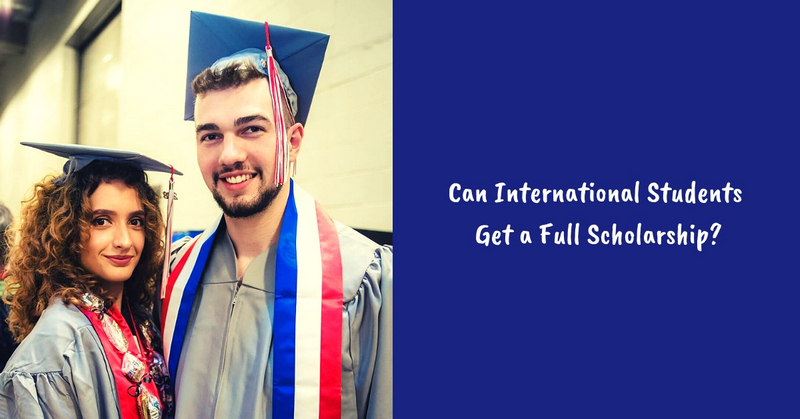Can International Students Get a Full Scholarship?

International scholarships and grants are an opportunity for talented students to get higher education abroad for free. Tuition grants allow you to cover the cost of housing, food, and sometimes study. Internation students can even get a full scholarship – the size of the grant or scholarship can range from 50% to 100% of student costs. Foreigners can get them on a general basis with the citizens of the country in which they want to study.
How to get a grant/scholarship to study abroad?
In order to get a grant or scholarship to study abroad, you need:
- Select a program. Information about grants is often posted on the websites of universities, as well as on government websites of the country where you intend to study;
- Collect documents. A detailed list is provided by universities or organizations that may issue a grant for study. Documents should be submitted 4-6 months before the beginning of a school year. Note! 70% of success in this matter depends on the correct and detailed filling of documents. And only 30% depends on the talents of the future grant/scholarship holder;
- Pass the interview with the jury. Grants for study are usually given after passing a competition, one of the stages of which is a personal or online interview with members of the selection committee;
- Wait for a decision on a grant or scholarship.
Necessary documents and conditions for getting a grant/scholarship
The main documents submitted for a grant or scholarship include:
- Properly completed application. Pay attention to the deadlines for applications, they are indicated in the information on getting a grant or scholarship;
- Copy of international passport;
- A copy of the diploma or an academic certificate, which contains a list of courses completed and exam grades. You will also need a university or notarized translation of the diploma. If required, you need to put an apostille on the translation;
- Academic resume (CV) with a list of duties at work or in the laboratory, a list of internships, a list of professional achievements, awards, scholarships received. Be sure to give links to scientific publications, if you have any. You can mention the experience of a volunteer. The resume should contain no errors;
- An essay or a motivational letter for 500 words. It is necessary to explain why you want to study at the selected university, why you want to study the chosen specialty, why you need a scholarship or grant. Also, you need to describe your project, on which you will work after getting a grant or scholarship. Take this drafting seriously;
- Results of international language exams (IELTS, TOEFL, TCF/DELF/DALF, etc.). If you have not taken a foreign language course – it’s time to sign up for one;
- Letters of recommendation from teachers (at least two letters). They must indicate the contacts of the guarantors;
- Any important documents confirming your victories in competitions, participation in internships, etc.
How to increase the chances of getting a grant or scholarship?
The candidate’s chances increase if he/she:
- shows excellent academic performance in school or university;
- plans to study for the same specialization or close to the field of education already acquired;
- fluent in a foreign language;
- writes a thesis or conducts research on current scientific topics;
- has experience in the chosen field of activity;
- can clearly explain how the knowledge gained during study abroad will contribute to the development of cultural, economic and political relations between the country of study and the country of the candidate’s permanent residence.